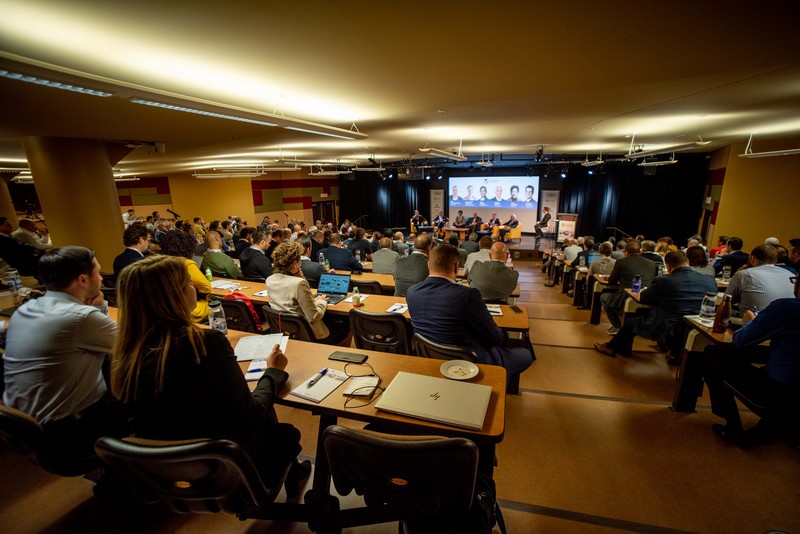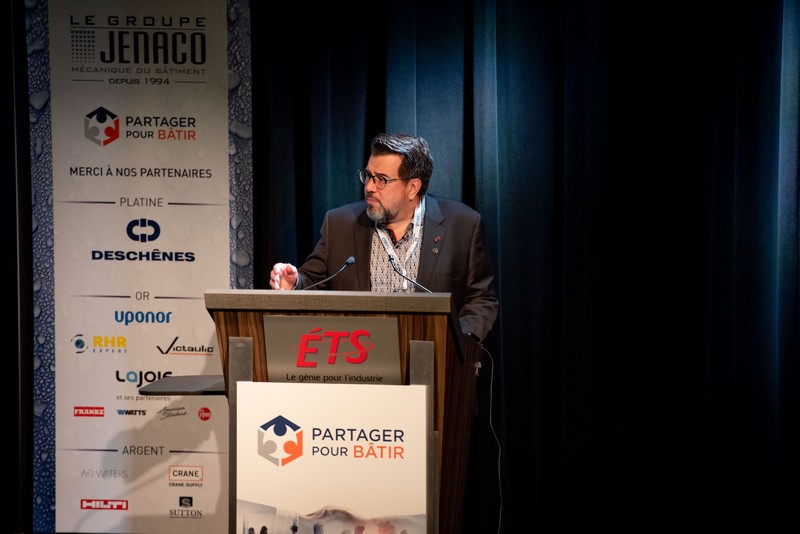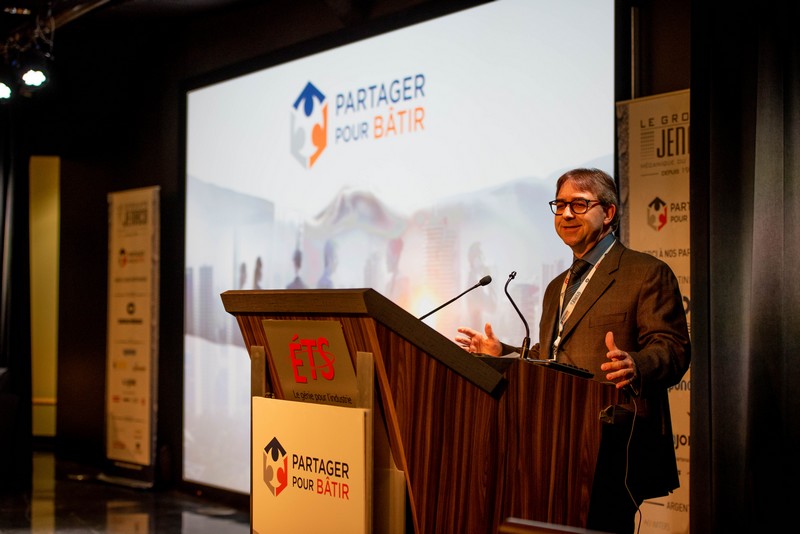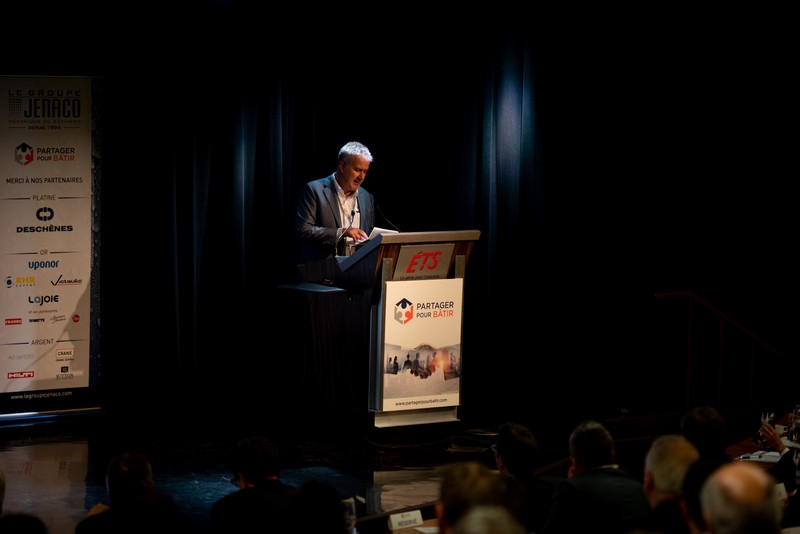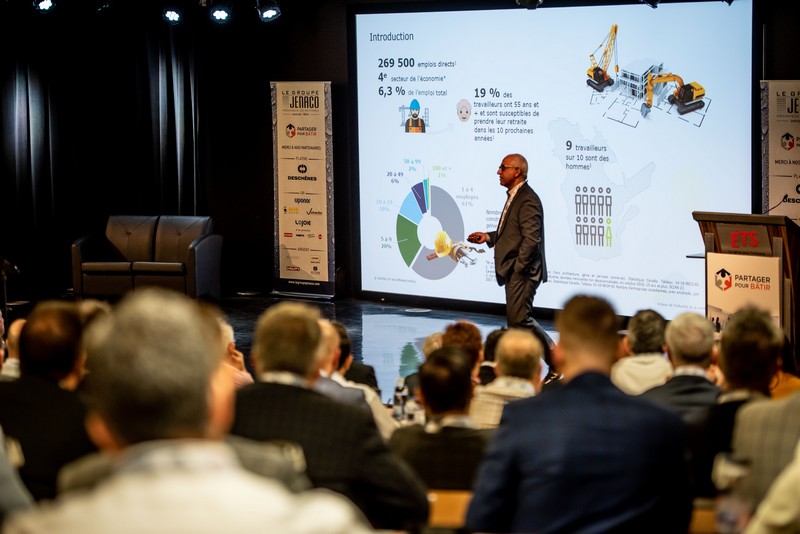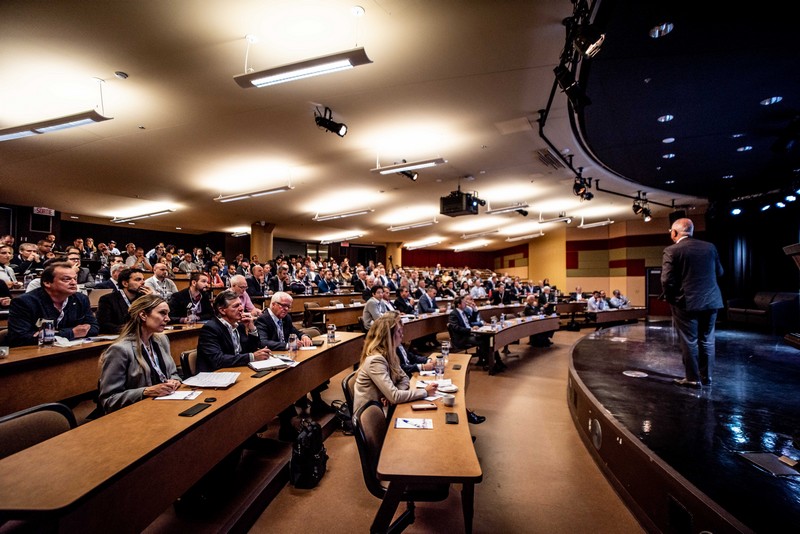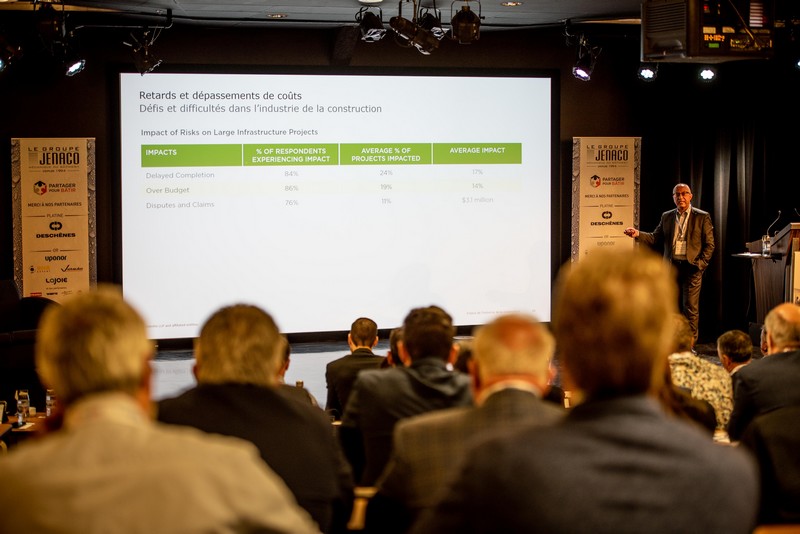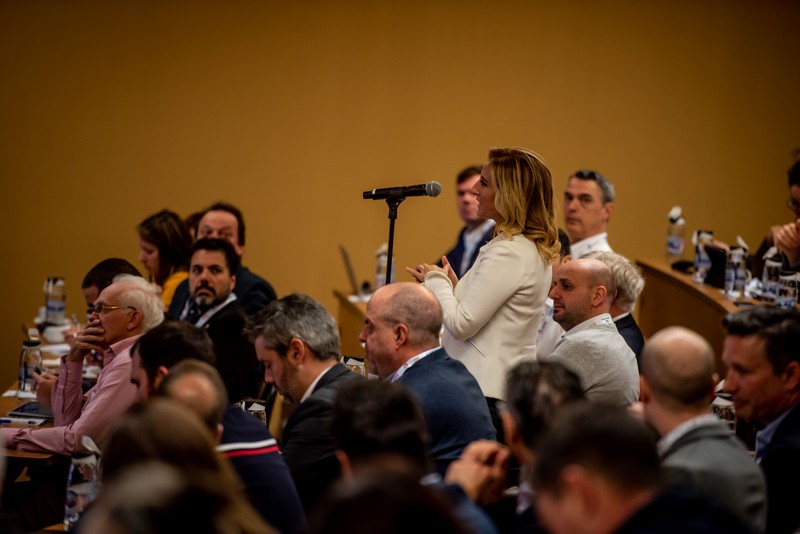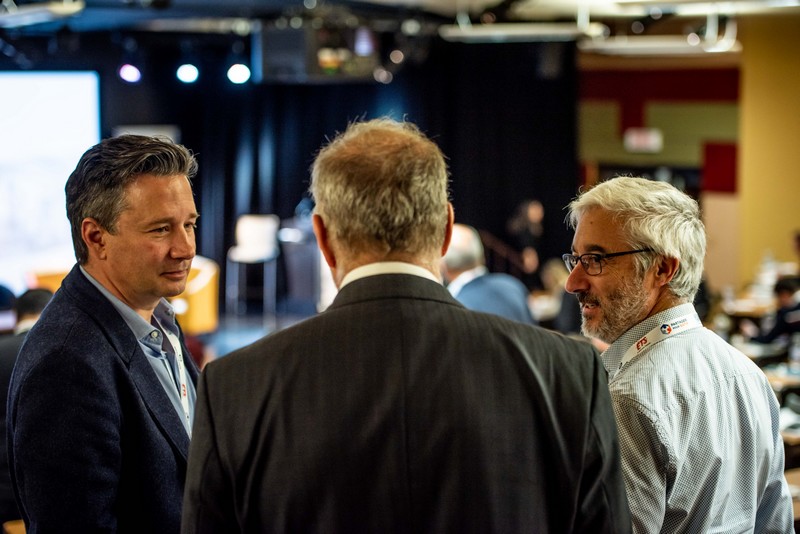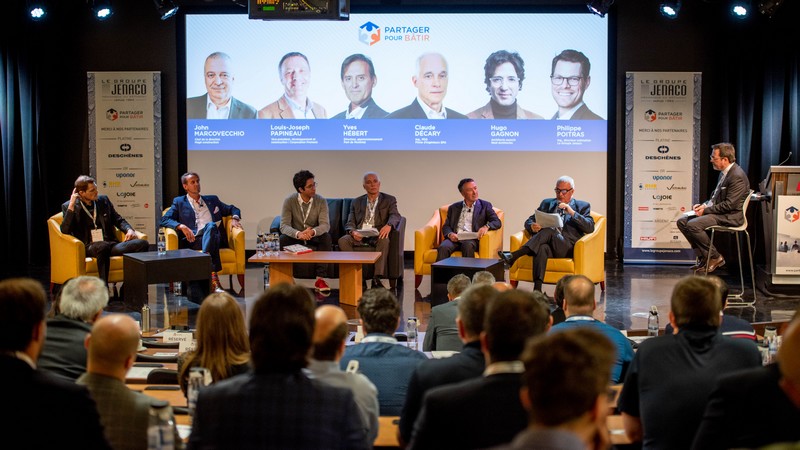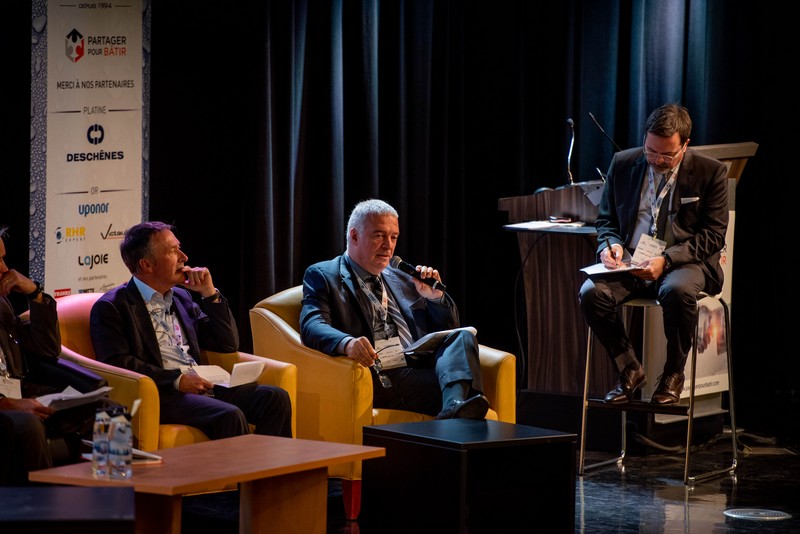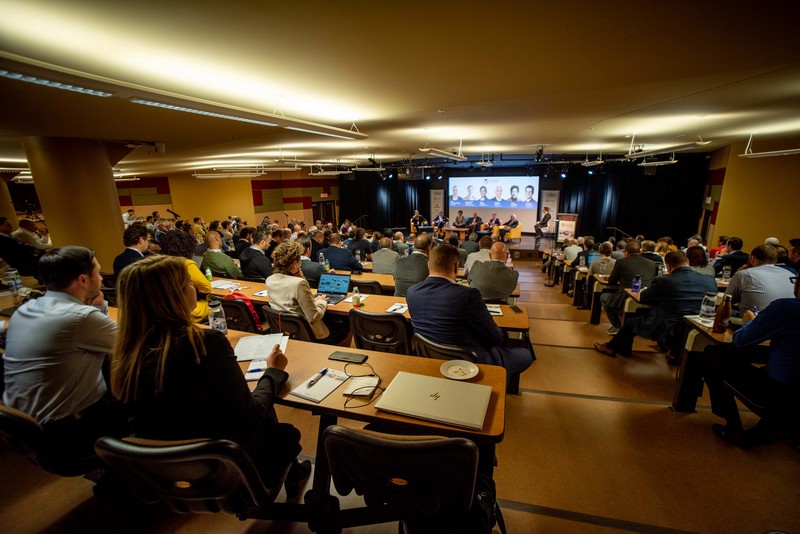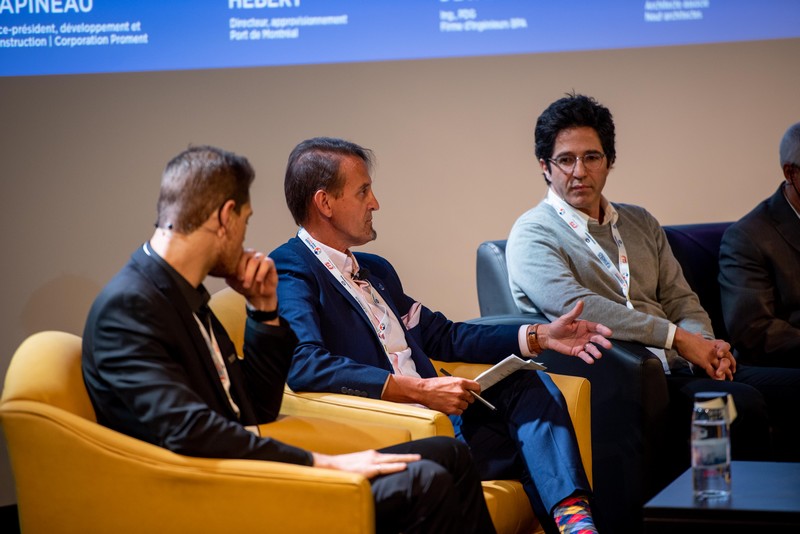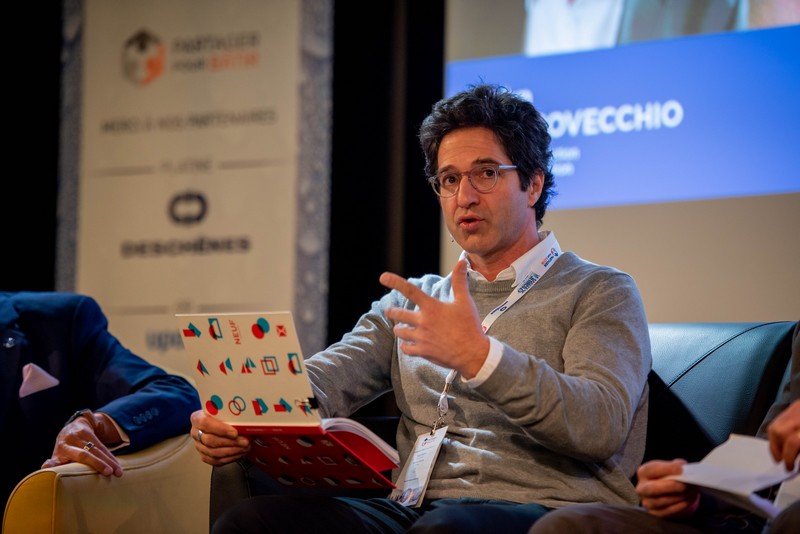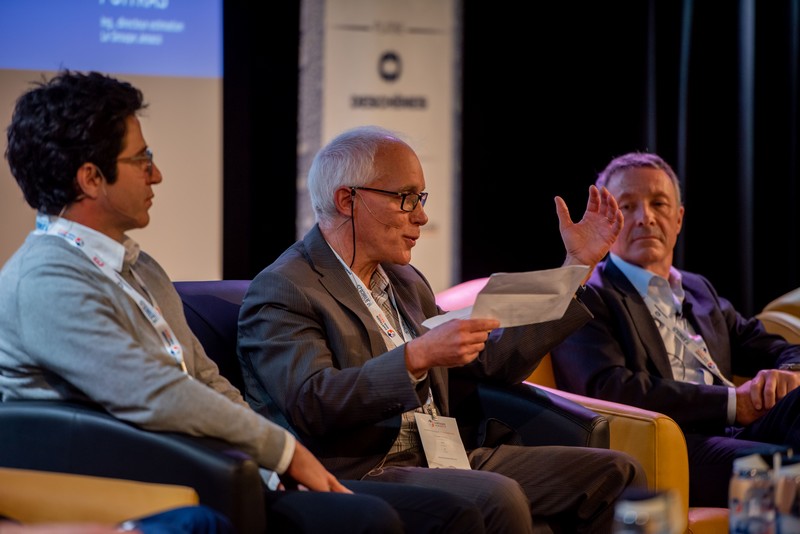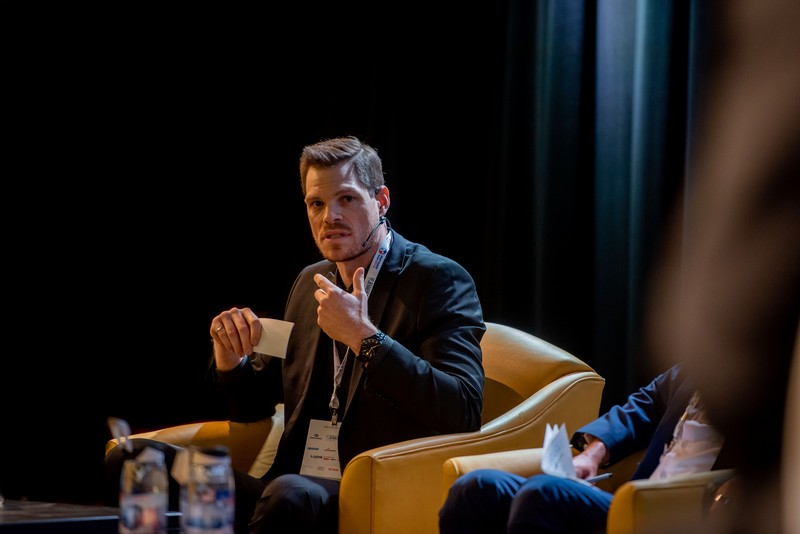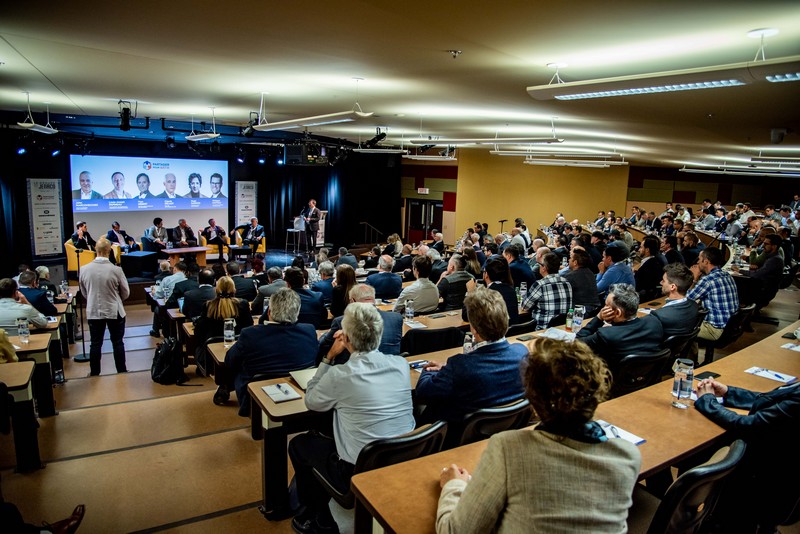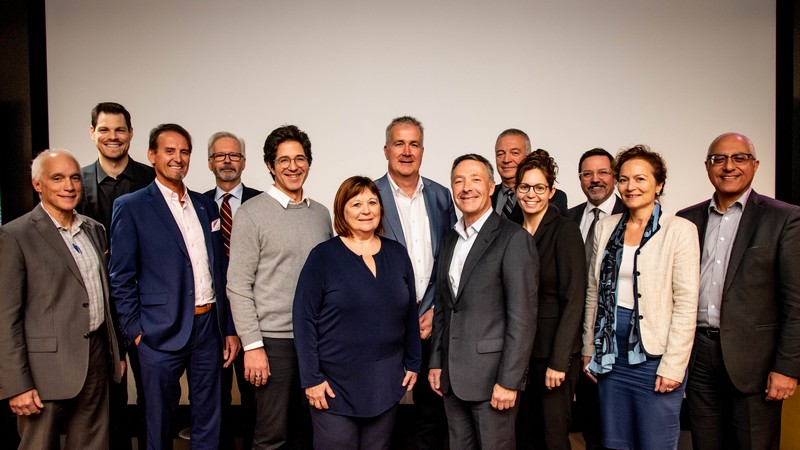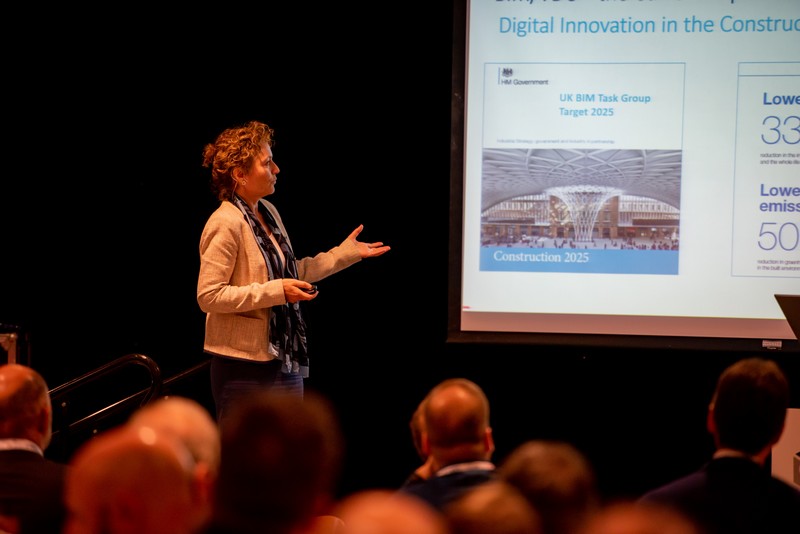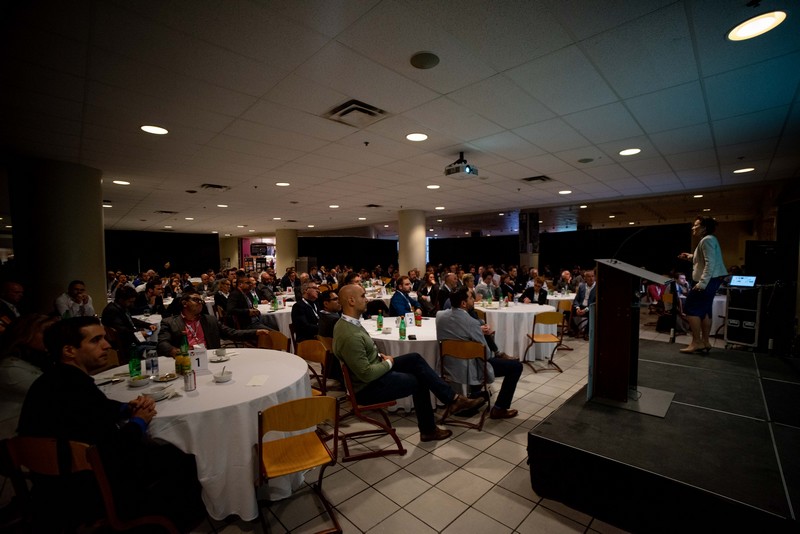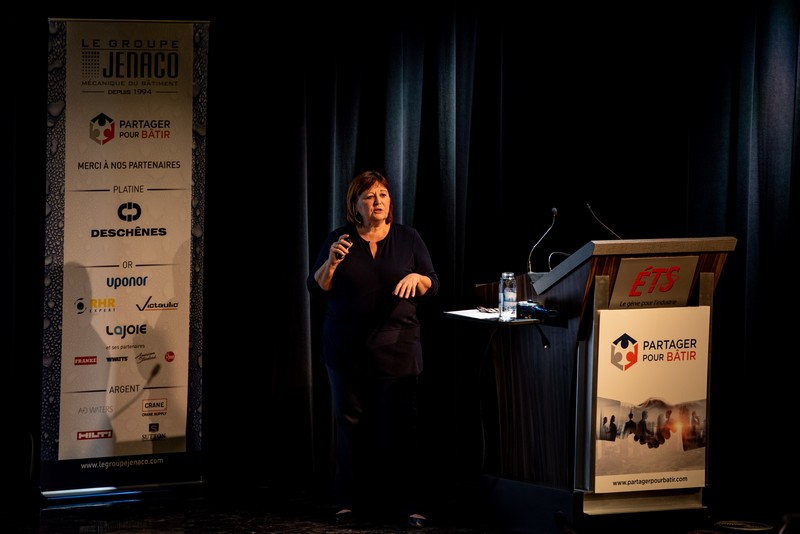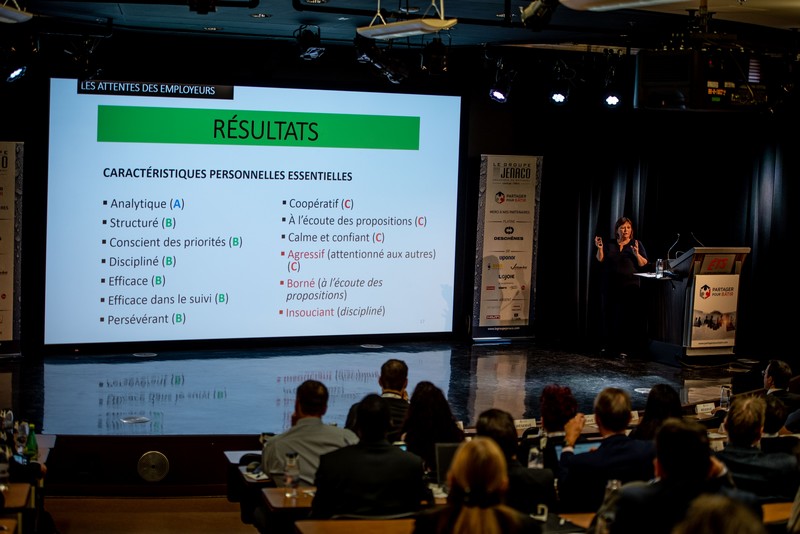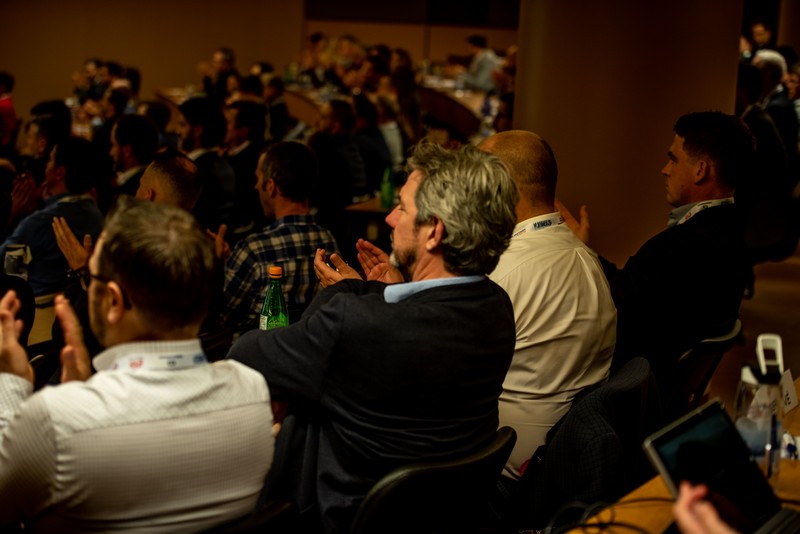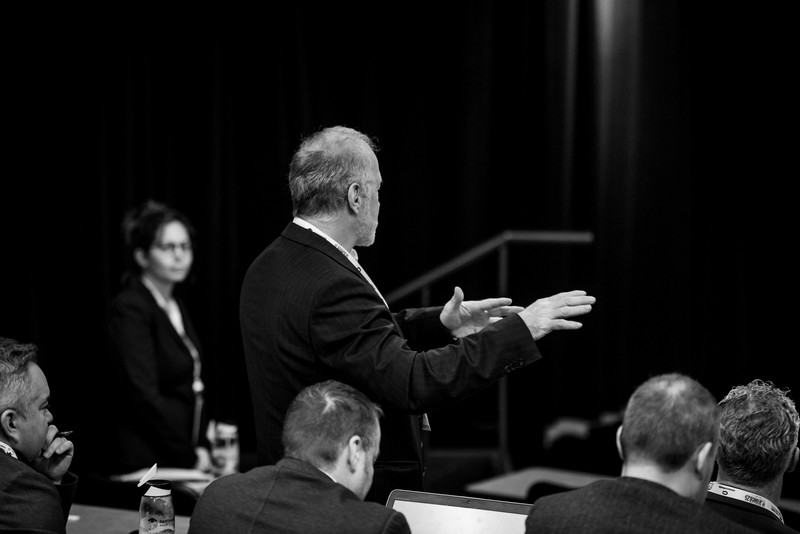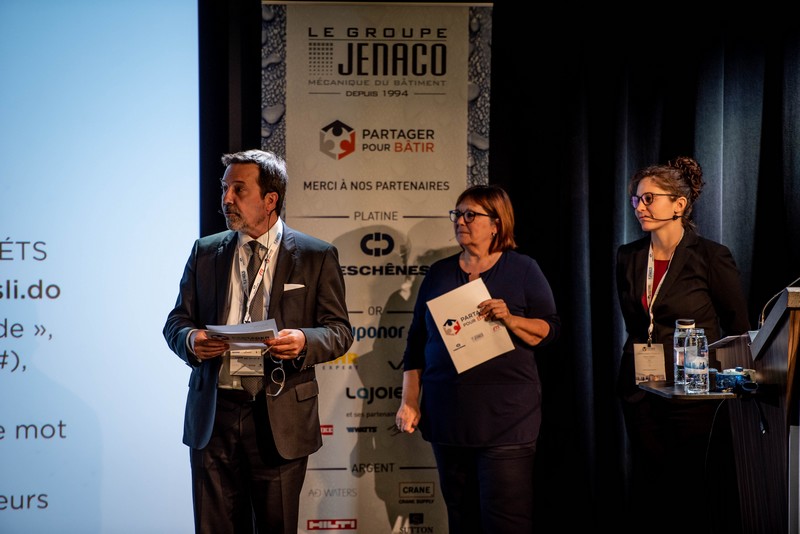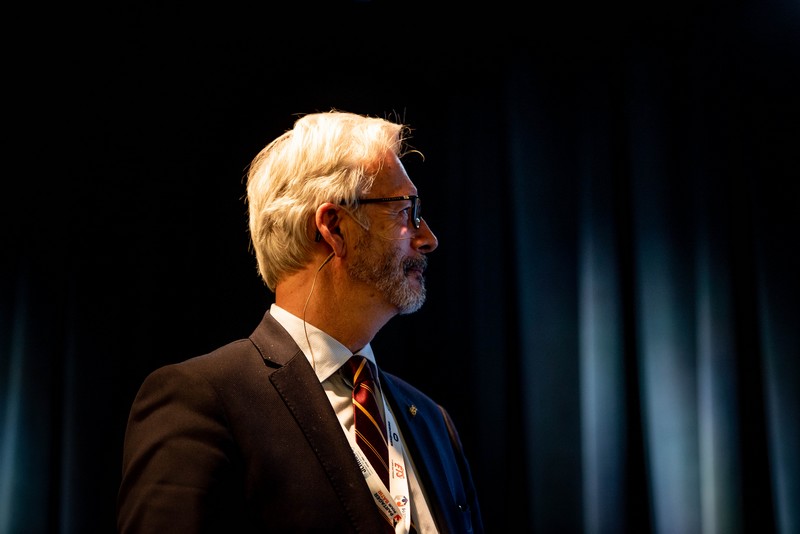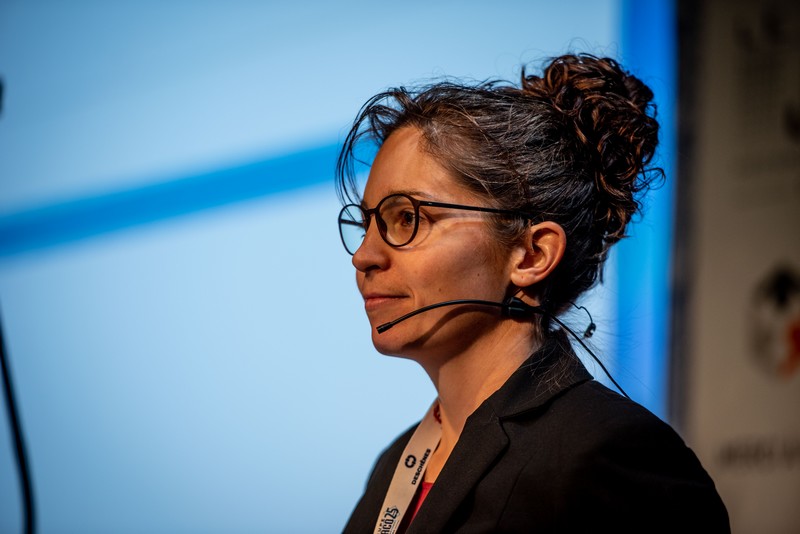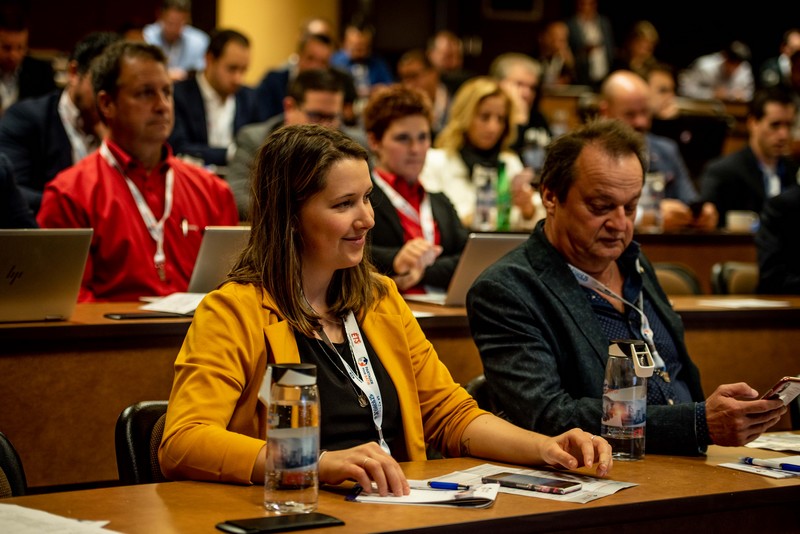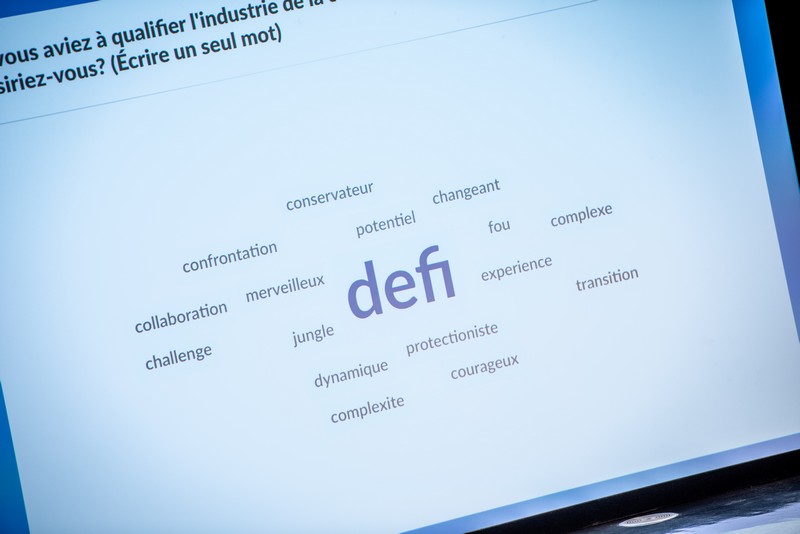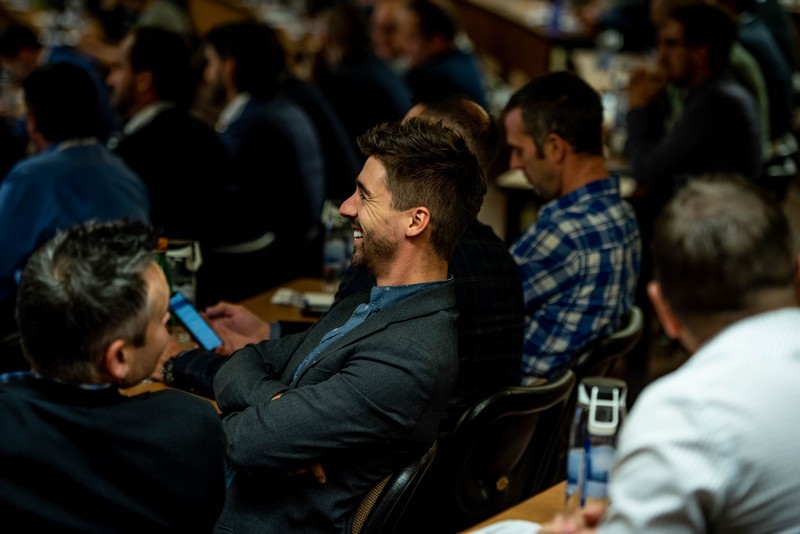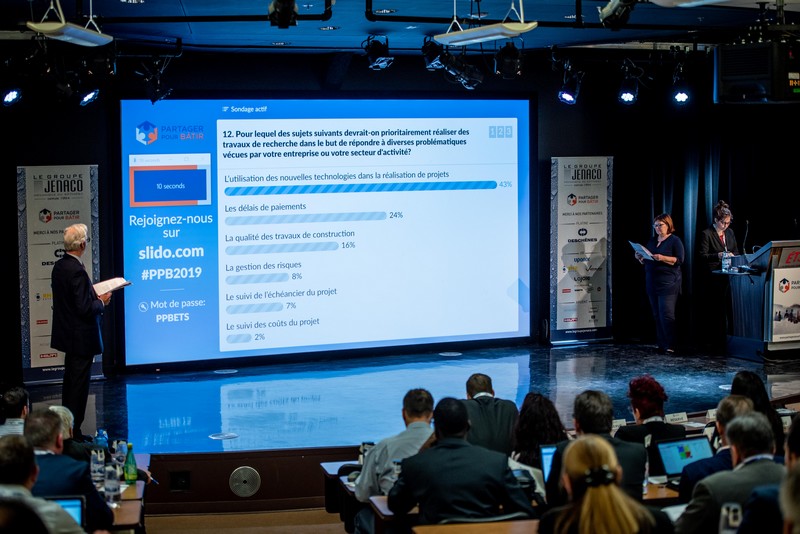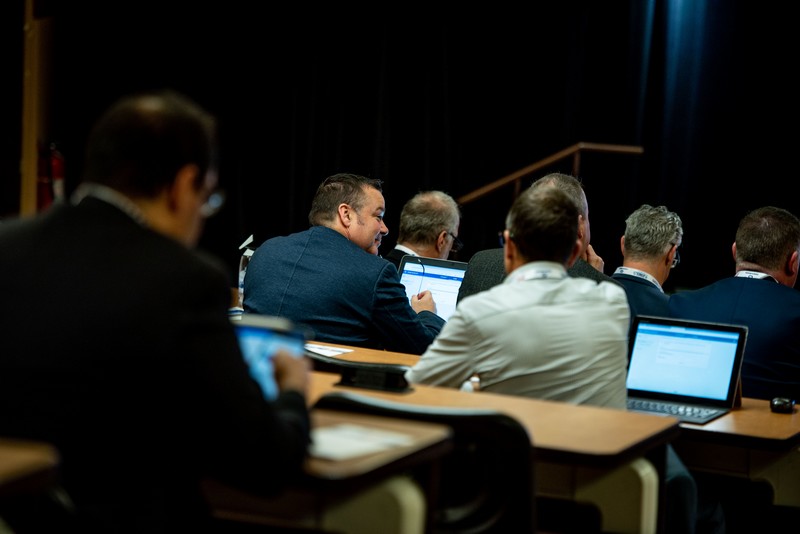A Groupe Jenaco Initiative
“This was the first time in my career that I have attended a meeting that has brought together so many quality people and diverse points of view,” exclaimed a participant in the first Share to Build day symposium, held on November 1, 2019, at the École de technologie supérieure (ÉTS). His thoughts were echoed by many of the 250 people present who welcomed this initiative by Jean Turgeon, the founder and president of Le Groupe Jenaco.
Mr. Turgeon was inspired by his own questions about how processes might be improved in the future, both within his organization and the industry as a whole. By sharing his idea with partners, he quickly came to the conclusion that such a project could be useful for the entire construction sector.
This day of strategic reflection on the challenges currently faced by the construction industry also made it possible to take a critical look at common ways of doing things and to identify possible solutions.
Solutions to Deal With the Labour Shortage
After confirming the importance of the construction industry to the Québec economy (ranked 4th), Maged Abdelsayed, Eng., MEng., partner at Deloitte, identified the main issues facing the players. Beyond the generalized labour shortage, he pointed out low productivity, delays and cost overruns, the technology gap, and the difficulty of establishing a collaborative approach in the construction ecosystem in Québec.
In the community’s defense, the speaker underlined the complexity of projects, the large number of actors involved, the diverse ways of doing things, and the difficulty of sharing existing information. Accelerating access to competency cards and increasing the versatility of construction trades were some of the solutions the speaker put forward to alleviate the labour shortage.
Mr. Turgeon also suggested there is a need to invest more upstream in the design of projects to counteract the devastating effects of delays and cost overruns. He also stressed the appropriateness of sharing information and using technology to better manage the information available.
Establish a Culture of Collaboration from the Outset
The panel of six actors from different backgrounds was also rich in content with shared experiences and points of view the audience found inspiring. Some noted the importance of using collaboration tools, using a risk management contract mode, reviewing the method of awarding contracts to avoid the pitfalls of the lowest bidder, not automatically taking disputes to court, etc.
Certain elements were the object of a consensus, such as better collaboration between all the actors, regardless of their status. Some panelists mentioned the responsibility of contractors and professionals and the need to be more open to collaboration, starting with the pre-project stage, considered to be the most crucial. Others have tried to develop a collaborative approach with a spirit of teamwork, mutual aid, and a win-win concept. Despite the need to always work faster, “we must take the time to talk to each other, to integrate specialties as quickly as possible into a project’s upstream work.”

Aware that the construction industry’s conventional management method is outdated, all agreed on the urgency of reviewing the ways of doing things right from the start of a project. This observation was echoed in the audience, with their questions about, among other things, the “how” and the impossibility for the majority of actors to be familiar with all the available technological tools. “Why not adopt a single management tool for the entire industry?” asked one participant who wanted to go digital and was worried about making the wrong choice.
The Construction Industry Needs a Rapid Culture Change
Deploring the fact that a large majority of companies have no understanding of BIM, Professor Ivanka Iordanova, the lunchtime speaker, showed the positive consequences of using this collaborative management method. Compelling statistics, both as regards reducing costs and reducing time and errors, have confirmed the value of this multidisciplinary, collaborative coordination model.
“Today, BIM is an essential tool for carrying out increasingly complex projects,” she said, recalling that soon the Quebec construction industry will need to step up a gear to start its 4.0 technological shift.
The Share to Build day symposium continued with another conference, this time identifying the essential qualities of 21st century construction project managers. She started off by saying that these essential qualities are those shown by managers with a high degree of emotional intelligence who can create a culture of cooperation and collaboration that can contribute to improving the performance of projects and the industry. Among these qualities, we find the ability to adapt, as well as skills to motivate a team, recognize changes, remove obstacles, train others, and challenge the status quo while remaining careful and thorough.
The meeting ended with an interactive workshop and a networking cocktail event. The purpose of the workshop was to identify potential research topics in order to explore various avenues to help the development of the construction industry as it faces many challenges. This research will be supported by Share to Build grants, to be awarded throughout 2020.
These scholarships were created by Le Groupe Jenaco, with the help of some partners: National Bank, Groupe Deschênes, Groupe Fransyl, Constructions Bâtiments Québec (BQ) Inc., Bastium Construction Inc., and Conseil 2.0.
In closing, remember that this Groupe Jenaco initiative was an integral part of its program of festivities for the 25th anniversary of the building mechanics company that specializes in piping.

